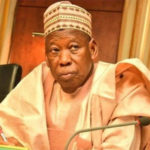
In the days following the end of the Nigeria Civil War in 1970, the most popular greeting among folks in the former Biafra was “Happy Survival!” For chieftains of the Nigerian media industry who will meet in Abuja this week to celebrate twenty years of Daily Trust, the situation is not very different.
Twenty years would look like a joke to some of the world’s oldest newspapers which are still in circulation such as Post-och Inrikes Tidningar of Sweden, founded in 1645; Opregte Haarlemsche Courant of The Netherlands, first published in 1656; Boletín Ofícial del Estado of Spain, founded in 1661 or The London Gazette, founded in 1665. Given the rate at which newspapers appear in Nigeria only to vanish after a few editions, twenty years in existence is a wonderful feat. In the North, newspapers such as The Democrat, The Reporter, Sentinel, Hotline, Today and New Nigerian have come and gone [the latter may yet come back]. Many newspapers and magazines that we enjoyed reading as schoolchildren are now either long gone or they are shadows of their former selves.
I was not old enough to read West African Pilot but among the papers I read which are now gone are Daily Times, DRUM, Spear, Observer, Sketch, Statesman, Chronicle, This Week, The Week, Sunray, Post Express, Newswatch, TSM, Concord, Lagos Weekend, Quality, Razor and Ikebe Super. Also gone are Crystal, NEXT and many others floated by Benue, Niger, Bauchi, Adamawa, Sokoto, Kebbi, Zamfara and Kogi state governments. In addition there were many emergency papers that were floated because of politics e.g. Alhaji Waziri Ibrahim’s paper which debuted in 1978 to support GNPP. Others such as Herald, Tide, Triumph and Standard are shadows of their former selves. Sometimes you don’t blame the Nigerian environment alone because the great pan-African magazines Africa, Africa Now, West Africa, South and New African, which flourished in the 1970s and 1980s are all gone. Only BBC Focus on Africa magazine still survives.
In March 1998 when Weekly Trust started, I paid a keen interest in it because I was also just starting out as pioneer editor of New Nigerian Weekly. Some people said at the time that New Nigerian Weekly was floated as a direct response to Weekly Trust but I don’t think so. For years, New Nigerian Newspapers’ [NNN] then managing director Prof Abubakar Rasheed was worried that its sales figures were lowest on Saturday. I was deputy editor of New Nigerian at the time; one day in November 1997 Prof Rasheed suddenly decided to discontinue the paper’s Saturday edition and he said I should prepare and launch a new, politics-oriented title on Saturday. I was just getting down to it when Malam Kabiru Yusuf came to my office and told me that he was starting Weekly Trust.
The Media Trust Chairman said at a press conference last week that the Abacha era [which was when Trust started] was the most difficult for Nigerian newspapers. That was true of private newspapers; imagine what it was for government owned newspapers like New Nigerian. In 1996 during a seminar in France, a Whiteman asked me how the censorship system worked in Nigeria. I told him, truthfully, that we had no censor in Nigeria. A newspaper is free to publish whatever it wants and pay the price later, if need be. It turned out to be a prophetic statement because ten years later, I was booted out as Editor of New Nigerian because of a story that attacked President Obasanjo’s third term bid. Ironically, it was not a military government but a democratic one that gave me the sack. I did not feel sorry for myself because I knew the career risk I was taking when I scribbled the headline on a piece of paper and handed it to the production editor.
When I first went to work at NNN in 1995 as deputy editor, I noticed that the News Editor automatically took any Abacha story and made it the lead. The story always began with “The Head of State, General Sani Abacha…” I was not surprised because in 1996 I interviewed Senator Adamu Augie and he told me that when he was the director general of NTA during the Second Republic, the Special Adviser to the President on Information Chief Adebanjo directed him to begin NTA’s Network News with “President Shehu Shagari..” I however suggested to New Nigerian a slight alteration of style. I said instead of starting a story with “The Head of State…” why not at least begin with the relevant story, i.e. “One thousand kilometres of standard gauge rail will soon be built in Nigeria, Head of State General Sani Abacha said yesterday.” At least that would reduce the monotony, but my suggestion was not accepted.
Sometime in 2004, NNN set up a management committee to find out why Daily Trust was prospering at New Nigerian’s expense. The committee questioned me extensively. I did not want to mention factors such as management quality, private sector motivation, remuneration or staff dedication. Instead, I mentioned the one factor that was most visible to an editor, which was editorial independence and readers’ perception of it.
In Nigeria, editorial independence is a tricky preposition. It gives a newspaper a lot of credibility with its readers but it is highly displeasing to the people in power. Almost every day one powerful person or another phones to complain about a story or even an advert. Publishing or even editing a newspaper is a thankless undertaking. Opposition parties like you for publishing the foibles of the government of the day but as soon as they themselves take over as the government, they adopt exactly the same posture as the previous rulers.
When I was booted out of NNN in 2006, Malam Kabiru Yusuf quickly offered me a job in Daily Trust. The interview was unusual; I was invited to the then uncompleted Kaduna house of Malam Bello Damagum, the Media Trust director who passed away recently. Malam Bello supplied ample food, sweets, drinks and kola nuts and the three of us chatted away for nearly three hours before I was offered the job of Editorial Manager. When I expressed misgivings about the title, it was changed to Managing Editor.
Daily Trust is celebrating twenty years at a time when many people think the days of the newspaper as we know it are numbered. But are they? No one knows for sure, except to say that nearly seventy years ago when colour television made its debut in American living rooms, everyone thought that was the end of the newspaper. Why waste time reading the fine print when you can witness the event on television in moving colour picture complete with sound? Yet, newspapers actually blossomed to historic proportions in the last 70 years.
For the Nigerian newspaper industry as a whole, this is a difficult time because circulation stopped growing four years ago and has been falling since then. It is difficult to say how much of this was due to the economic recession; how much was due to growth of the internet and social media, and how much of it was due to the cultural trend of collapse of reading culture. With a population of 170m, 60% of them allegedly literate, less than half a million newspaper copies are sold in Nigeria every day. Compare this to the 1970s when Sunday Times sold 500,000 copies and New Nigerian sold 250,000.
Actually, the decline dates back to the Structural Adjustment Program [SAP] of the 1980s, when production and other costs spiralled and many readers could no longer buy a newspaper. It is difficult to reverse trends like that. So, Daily Trust’s 20th anniversary should not so much be about Happy Survival. It should be about what to do in the next 20 years when internet penetration would have reached its peak.



